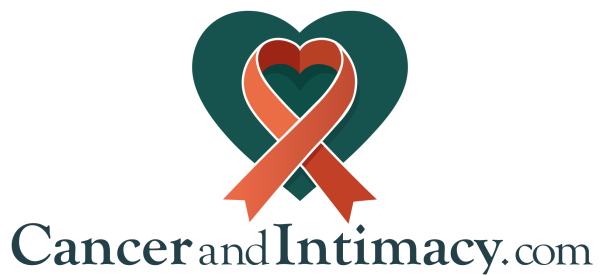When Desire Changes: A Loving Look at Libido, Orientation, and Arousal After Illness
There’s a quiet story many of us carry that never makes it to the doctor’s office or the family dinner table.
It begins with a shift—a change in what we want, how we feel, or how our bodies respond.
Sometimes, it’s sudden: a surgery, a diagnosis, a medication, a trauma.
Other times, it’s more like a whisper over months or years—a growing disinterest, a different kind of arousal, a tender confusion about what used to feel good and what doesn’t anymore.
This is the story of changing desire. And it deserves to be told with compassion, curiosity, and reverence.
What It Means to Want (or Not Want) Sex Now
Desire isn’t static.
It evolves, softens, sharpens, quiets, or awakens in ways we don’t always expect. And for people navigating cancer, chronic illness, or major life transitions, these changes are not just a possibility—they can be quite common.
You might feel:
A loss of libido after treatment or surgery
A new longing for emotional closeness but not physical touch
Surprise at a different orientation or kind of attraction arising
Discomfort with past turn-ons and curiosity about new ones
A flatness, confusion, or grief where desire used to live
Or you might find yourself feeling more alive, more sensitive, more open than ever—perhaps even drawn to pleasure as a lifeline, a reclamation, or a source of hope.
Whatever you’re feeling: You are not broken. You are becoming.
Libido Isn’t a Light Switch
We often think of libido as a binary: it’s either “on” or “off.”
But the truth is, libido is more like a weather system—it shifts with stress, hormones, medication, relational dynamics, body image, identity, trauma, and yes, healing.
Emily Nagoski, author of Come As You Are, describes desire as either “responsive” (something that arises after touch or emotional closeness) or “spontaneous” (something that arises seemingly out of nowhere). Many people post-illness or during recovery find their desire becoming more responsive than it used to be.
That doesn’t mean you don’t want or need intimacy. It means your body and nervous system might need gentler on-ramps, specific products/tools/toys, alternative positions. And that’s not failure—it’s wisdom.
Arousal: A New Landscape
Illness and its treatments can alter how our bodies respond to touch, temperature, pressure, or stimulation.
You might feel less sensation in familiar places.
You might discover new erogenous zones you never noticed before.
One client described her post-chemo body as “a garden where new flowers are blooming in strange places.”
Another said, “I thought I’d lost my sensual self forever. But then, one night, I brushed my own arm and started crying—I could feel again. And it felt like me.”
Arousal doesn’t always mean friction and climax.
It can be the warmth in your belly when your partner laughs.
The deep breath you take when someone touches your hair.
The way your hips sway to music when no one’s watching.
Orientation: When Old Labels Don’t Fit
Healing often shakes loose old identities—not just about our bodies, but about who we love and how we love.
Maybe the gender or type of person you’re drawn to has shifted.
Maybe you’ve always been more emotionally than sexually driven and now realize you’re somewhere on the asexual spectrum.
Maybe your orientation hasn’t changed, but the language you want to use for yourself has.
There is no timeline or checklist for identity.
Just the gentle invitation to keep noticing what feels true, now.
From Confusion to Compassion
So many people come to me asking, “Am I normal?”
And I always say this:
You are not a problem to be fixed. You are a story unfolding.
The path forward is rarely linear. But there is a path.
It might look like:
Keeping a sensuality journal
Exploring gentle self-touch or non-goal-based intimacy
Talking openly with your partner(s) about what’s different
Working with a coach or therapist who specializes in sexual healing
Giving yourself permission to not want sex—and still want closeness, tenderness, and love
Final Thoughts: There’s Nothing Wrong With You
Desire is a living thing. It may hibernate. It may transform.
But it does not vanish without reason, and it does not define your worth.
Whether you feel sexy, numb, tender, ravenous, confused, or still unsure—
you are allowed to be here.
You are allowed to be exactly as you are.
And you are not alone.
Want more support?
Explore our Resource Library for tools, journaling prompts, and guided practices on desire, identity, and intimacy after illness.
Or check out our self-paced program Intimacy After Illness: A Companion for Reawakening.
Your pleasure, your healing, your truth—it all matters here.
